
Ostend Beach: Belgium's Coastal Gem
Ostend Beach, located on the coast of Belgium, is a charming and vibrant seaside destination. Known for its long, sandy shores and clear waters, it offers a perfect getaway for families, couples, and solo travelers alike. The beach is clean and well-maintained, making it an ideal spot for sunbathing, swimming, and beach sports. Beyond the beach, Ostend is a city rich in culture and history. Take a stroll along the promenade, where you can find a variety of shops, cafes, and restaurants. Don’t miss the chance to visit the Mercator, a famous museum ship, and the beautiful Royal Galleries. The city also hosts numerous festivals and events throughout the year, adding a festive atmosphere to your visit. For those interested in arts and architecture, the Mu.ZEE museum offers an impressive collection of modern and contemporary art. The city also boasts a stunning casino and several parks where you can relax and enjoy the green spaces. With its blend of natural beauty, cultural richness, and lively events, Ostend Beach is a destination that promises a memorable and enjoyable experience.
Local tips in Ostend Beach
- Visit during the summer months for the best weather and vibrant atmosphere.
- Check out the local seafood restaurants for fresh and delicious meals.
- Explore the nearby dunes and nature reserves for a peaceful retreat from the city.
- Plan your trip around local festivals for a unique cultural experience.
- Rent a bike to easily explore the city and its surroundings.
Ostend Beach: Belgium's Coastal Gem
Ostend Beach, located on the coast of Belgium, is a charming and vibrant seaside destination. Known for its long, sandy shores and clear waters, it offers a perfect getaway for families, couples, and solo travelers alike. The beach is clean and well-maintained, making it an ideal spot for sunbathing, swimming, and beach sports. Beyond the beach, Ostend is a city rich in culture and history. Take a stroll along the promenade, where you can find a variety of shops, cafes, and restaurants. Don’t miss the chance to visit the Mercator, a famous museum ship, and the beautiful Royal Galleries. The city also hosts numerous festivals and events throughout the year, adding a festive atmosphere to your visit. For those interested in arts and architecture, the Mu.ZEE museum offers an impressive collection of modern and contemporary art. The city also boasts a stunning casino and several parks where you can relax and enjoy the green spaces. With its blend of natural beauty, cultural richness, and lively events, Ostend Beach is a destination that promises a memorable and enjoyable experience.
When is the best time to go to Ostend Beach?
Iconic landmarks you can’t miss
Strand Oostende
Discover the beauty of Strand Oostende, the ultimate beach destination on the Belgian coast, where relaxation meets vibrant seaside culture.
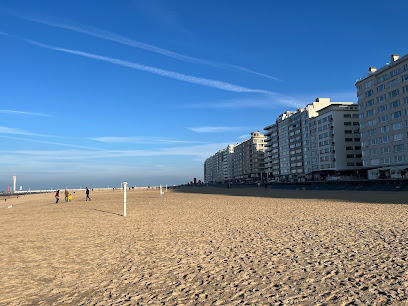
Leopoldpark
Explore the serene beauty of Leopold Park in Ostend, a perfect blend of nature, art, and tranquility in Belgium's coastal gem.
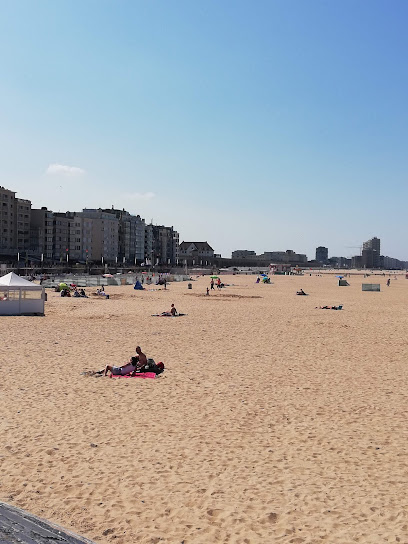
Atlantikwall Raversyde
Discover the rich history of World War II at Atlantikwall Raversyde, a unique open-air museum along Belgium's stunning coastline.
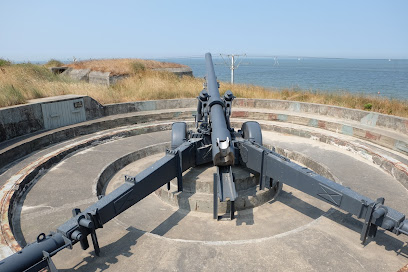
Maria Hendrikapark
Experience the natural beauty and serenity of Maria Hendrikapark in Ostend, Belgium, a perfect retreat for relaxation and outdoor activities.
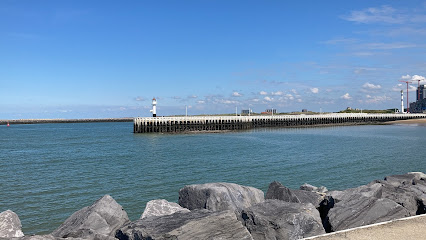
Fort Napoleon
Explore the historic Fort Napoleon in Ostend, a captivating heritage museum showcasing Belgium's military past against a stunning coastal backdrop.
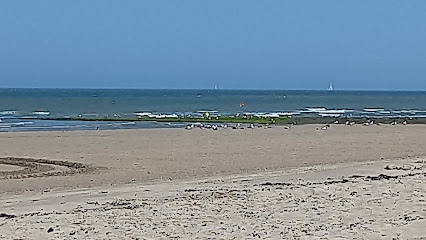
Strand Mariakerke
Discover the beauty and vibrancy of Strand Mariakerke, Ostend's premier beach destination for relaxation and adventure by the North Sea.
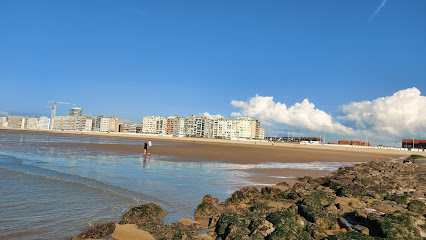
Japanse Tuin - Shin Kai Tei
Discover the tranquility of Japan in Ostend's Japanse Tuin - Shin Kai Tei, a serene garden filled with beauty and cultural charm.
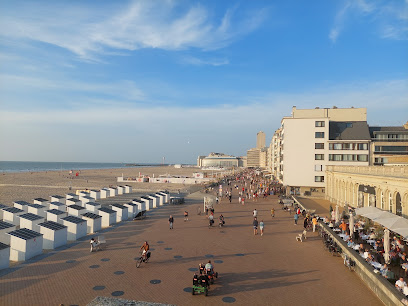
Zeeheldenplein
Experience the vibrant charm of Zeeheldenplein in Oostende, Belgium - a cultural hub filled with shops, cafes, and lively local events.
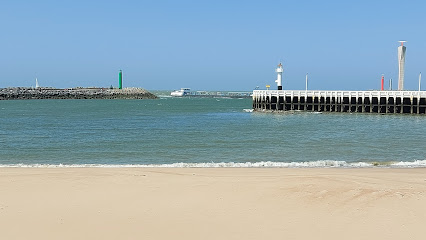
Royal Galleries of Ostend
Discover the elegance of the Royal Galleries of Ostend, a historical landmark offering stunning sea views and a vibrant atmosphere for tourists.
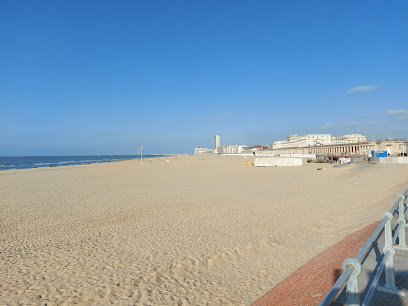
Oostende Pier
Experience the scenic beauty and vibrant atmosphere of Oostende Pier, where the charm of the Belgian coast comes to life.
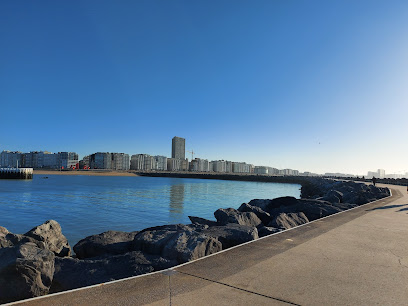
Monument of Leopold II
Discover the Monument of Leopold II in Ostend - a captivating historical landmark reflecting Belgium's rich history and stunning coastal views.
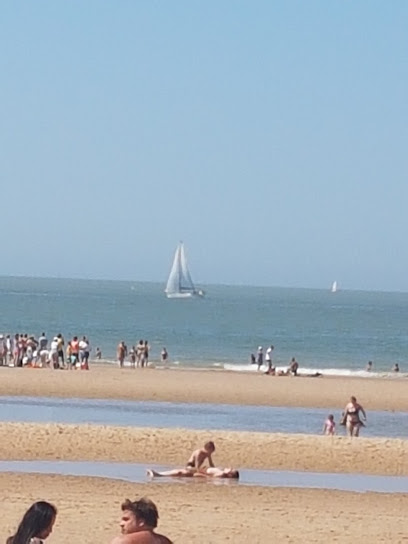
Onze-Lieve-Vrouw-ter-Duinenkerk
Discover the breathtaking neo-Gothic architecture and serene ambiance of Onze-Lieve-Vrouw-ter-Duinenkerk, a must-visit Catholic church in Ostend, Belgium.
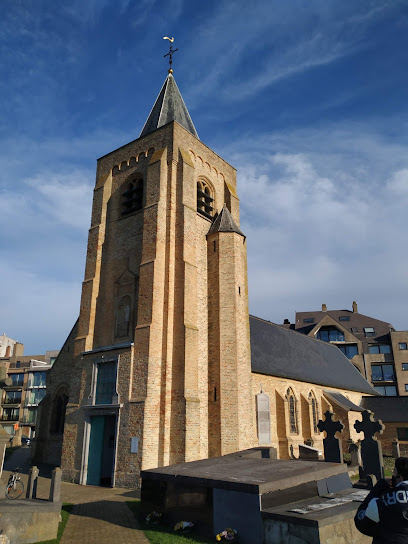
IJslandvaarder Amandine
Discover the rich maritime history of Ostend at the IJslandvaarder Amandine, a fascinating maritime museum showcasing the legendary fishing vessel.
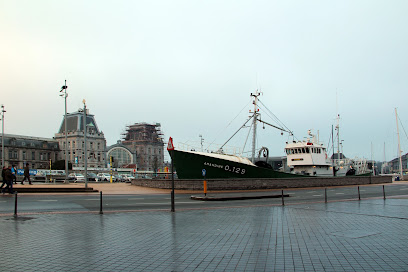
Beaufort Beeldenpark: Rock Strangers - Arne Quinze
Experience contemporary art in nature at Beaufort Beeldenpark, featuring stunning sculptures along the scenic Ostend coastline.
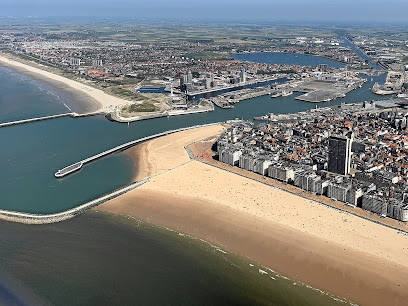
Duinen Raversijde
Explore the stunning hiking trails and pristine dunes of Duinen Raversijde in Ostend, where nature and history intertwine seamlessly.
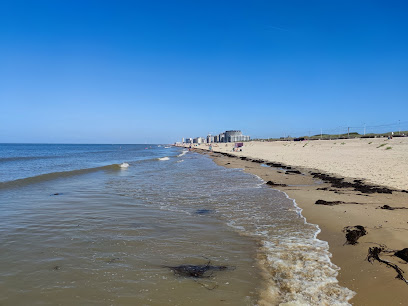
Unmissable attractions to see
De Garre
Discover the cozy ambiance of De Garre in Bruges, where local beers and Belgian culture blend seamlessly for an unforgettable experience.
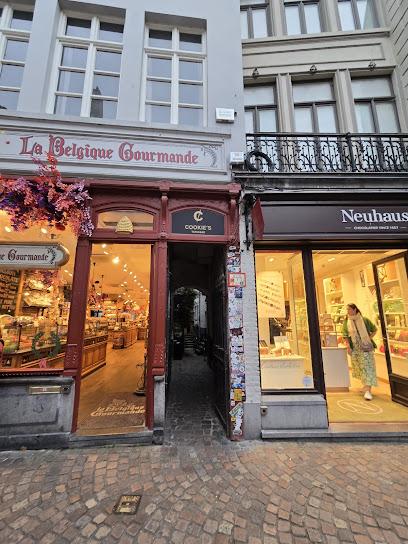
Strand Mariakerke
Experience the beauty of Strand Mariakerke, Ostend's stunning beach destination known for its golden sands and vibrant seaside culture.
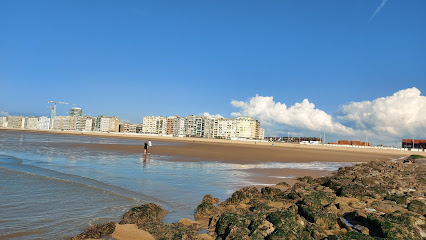
Huisje van Majutte
Explore the maritime heritage and local brews at Huisje van Majutte, a captivating museum and pub in Blankenberge that tells the story of the sea.
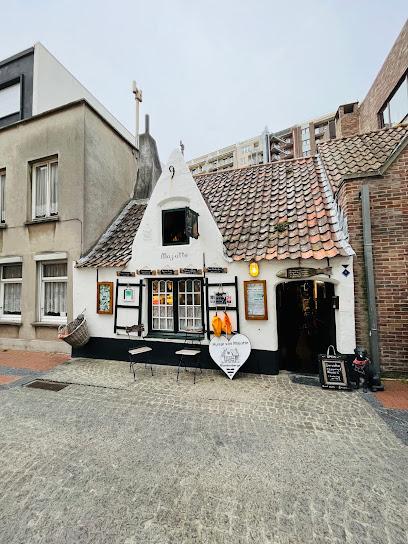
Lunapark REFLEX
Experience the thrill and excitement of Lunapark REFLEX, Ostend's premier amusement center with rides and fun for all ages.
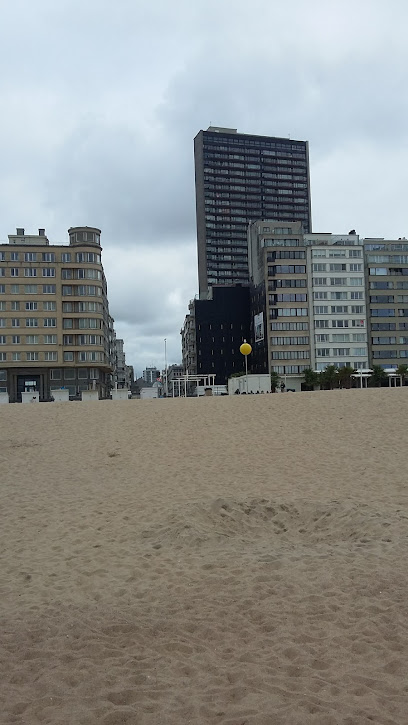
The Monk
Experience Bruges' vibrant nightlife at The Monk, a sports bar and pool hall offering delicious food, drinks, and a lively atmosphere for all.
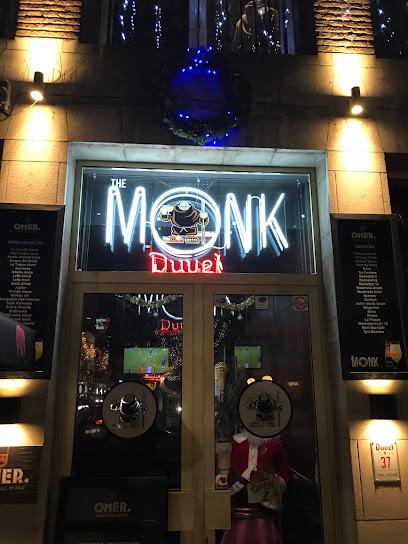
Castle Loppem
Experience the majestic charm of Castle Loppem, a historic castle surrounded by beautiful gardens and rich culture in Zedelgem, Belgium.
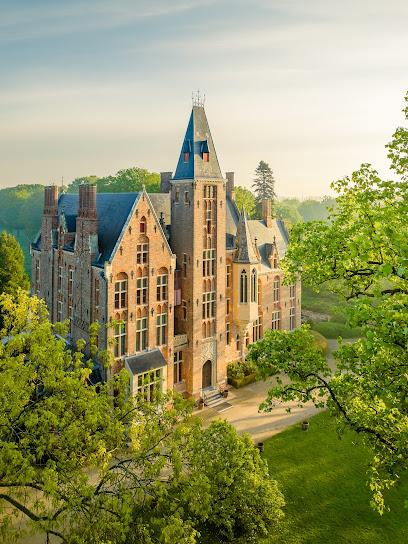
Groot Vlaenderen
Discover the vibrant atmosphere of Groot Vlaenderen, Bruges' top cocktail bar, where expertly crafted cocktails meet an enchanting ambiance.
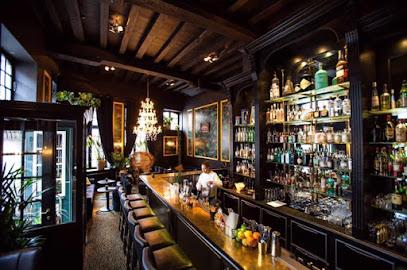
Saint-Éloi Belfry of Dunkirk
Discover the iconic Saint-Éloi Belfry of Dunkirk, a UNESCO World Heritage site showcasing stunning architecture and breathtaking views of the city.
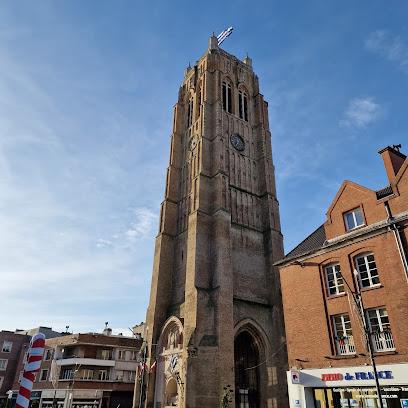
Kinderboerderij De Lange Schuur
Explore Kinderboerderij De Lange Schuur in Ostend: A family-friendly zoo with engaging animal interactions and educational experiences for all ages.
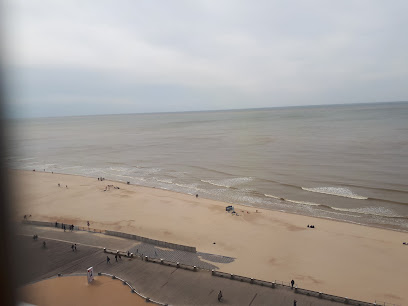
Royal Galleries of Ostend
Discover the Royal Galleries of Ostend, a stunning historical landmark offering coastal views, culture, and elegant leisure in the heart of Ostend.
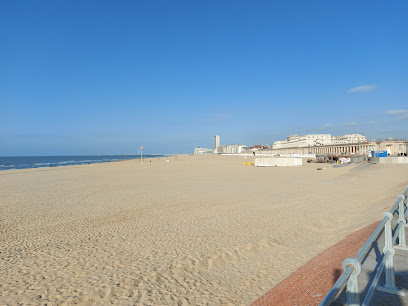
Jumpsquare Oostende (voorheen Hangtime)
Discover endless fun and excitement at Jumpsquare Oostende, Belgium's top indoor playground, featuring thrilling activities for all ages.
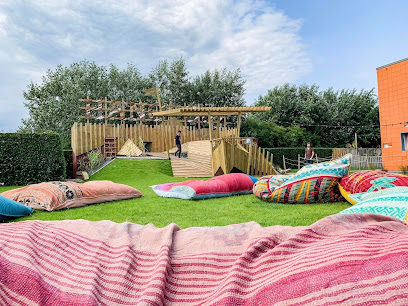
Dunkirk Tourist Office
Discover Dunkirk’s rich history and vibrant culture at the Dunkirk Tourist Office, your gateway to exploring this beautiful coastal city.

Provincial Court
Explore the Provincial Court in Bruges, a masterpiece of Gothic architecture and a symbol of the region's rich legal history.
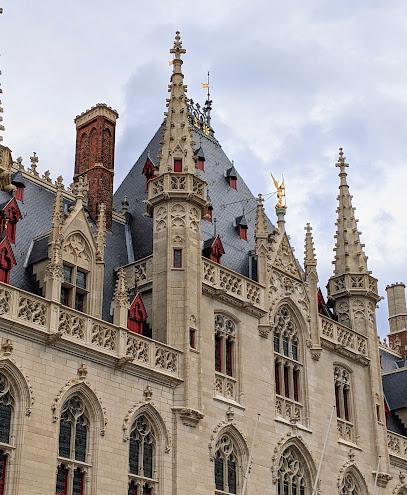
Guido Gezellemuseum
Discover the Guido Gezellemuseum in Bruges, where art and poetry intertwine in a beautiful cultural experience.
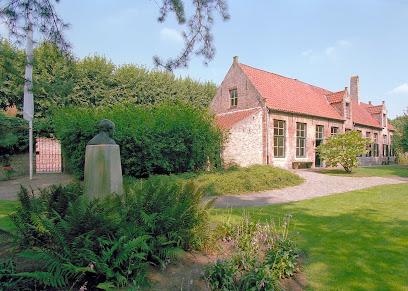
Captain Blue
Experience Ostend like never before with Captain Blue's unforgettable boat tours, showcasing the beauty of the Belgian coastline and rich marine life.
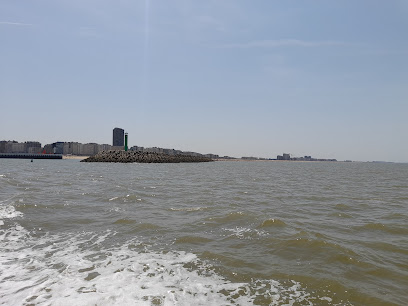
Essential places to dine
Koekoek Tavern
Experience authentic Belgian cuisine at Koekoek Tavern in Ostend - where flavor meets tradition in every dish.
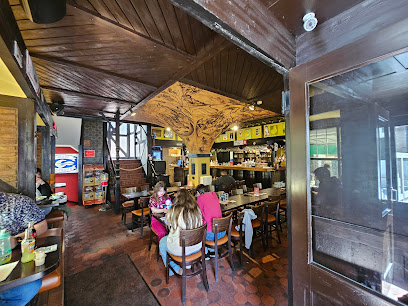
La Siesta Oostende
Experience the vibrant fusion of Mexican and Belgian cuisine at La Siesta Oostende – a must-visit dining destination on your Ostend adventure.
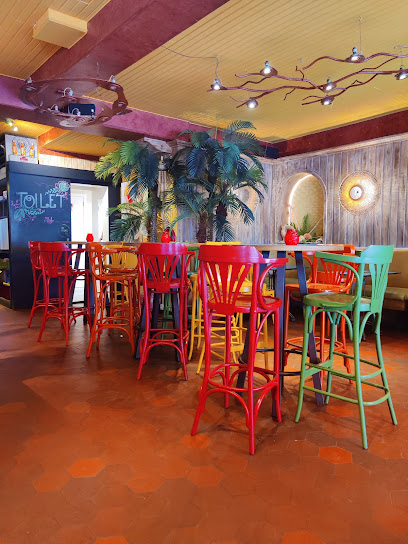
't Waterhuis
Experience authentic Belgian cuisine at 't Waterhuis in Ostend – where every meal is a celebration of local flavors.
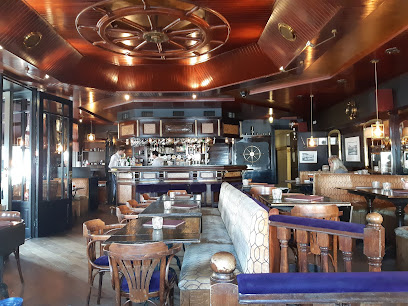
l'Apéro Ostende
Savor authentic Belgian cuisine with stunning sea views at l'Apéro Ostende - a culinary gem on the coast.
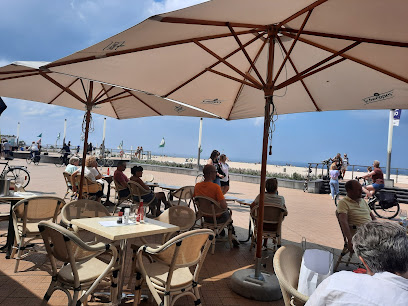
Apero Fish Palace
Discover fresh seafood delights at Apero Fish Palace in Ostend - your go-to destination for authentic Belgian coastal cuisine.
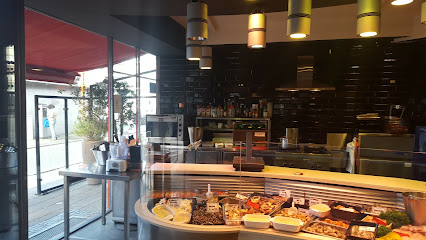
La Moulinière Oostende
Discover exquisite seafood dining at La Moulinière in Oostende - where local flavors meet stunning waterfront views.
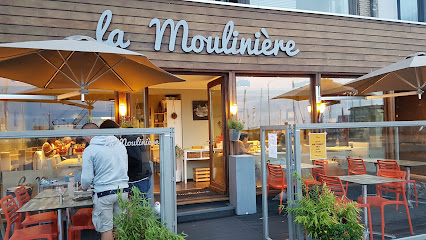
Ocean
Experience authentic Belgian cuisine at Ocean in Ostend with stunning sea views and a welcoming atmosphere for every occasion.
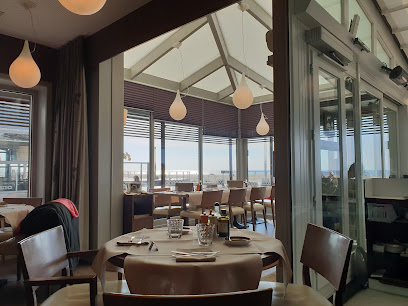
Bistroom De Baron
Discover the essence of Belgian cuisine at Bistroom De Baron in Ostend – where every meal is a celebration of flavor.
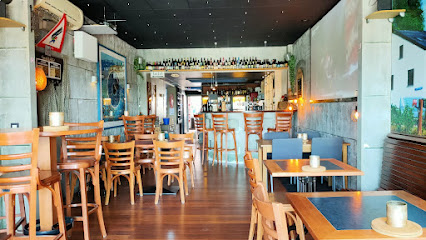
Restaurant Diplomat
Discover culinary excellence at Restaurant Diplomat in Ostend, where Belgian flavors meet fresh seafood along the scenic coastline.
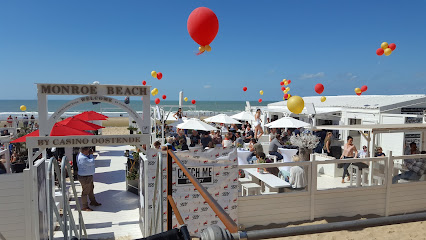
Bistro Mathilda
Experience authentic Belgian cuisine at Bistro Mathilda in Ostend - a culinary gem by the sea.
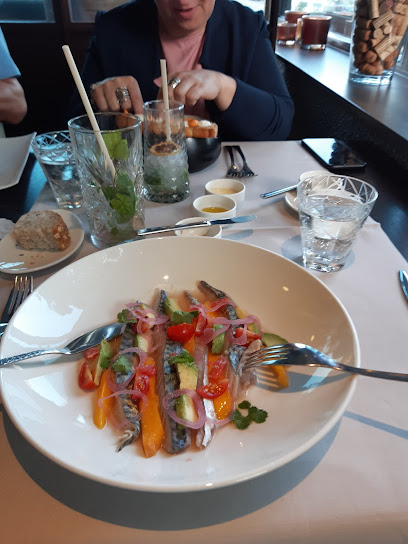
Histoires D'O
Experience exquisite European cuisine at Histoires D'O on Ostend's beautiful beachfront promenade.
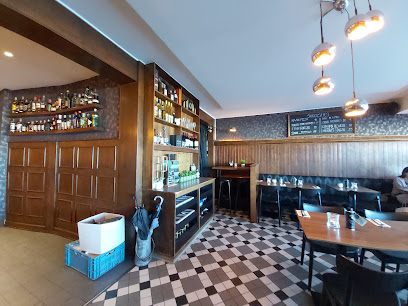
Strandhuis
Experience authentic Belgian cuisine with stunning sea views at Strandhuis in Ostend – a must-visit culinary gem.
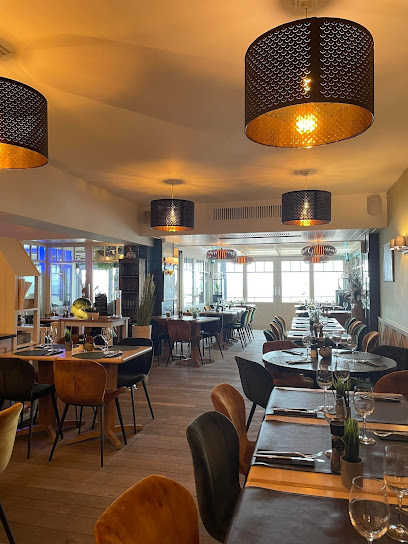
Bistrot de la Mer
Experience authentic Belgian coastal cuisine at Bistrot de la Mer in Ostend – where fresh seafood meets delightful flavors.
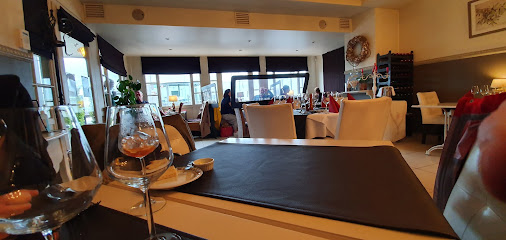
Le Touquet
Experience culinary excellence at Le Touquet in Ostend, where Belgian flavors meet vegan delights along the stunning coast.
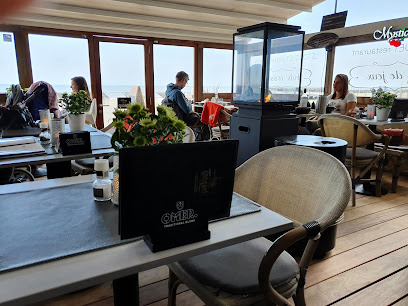
De Amandine
Discover the flavors of Belgium and Eastern Europe at De Amandine in Ostend—where culinary tradition meets modern charm.
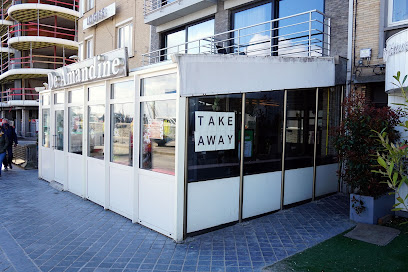
Markets, malls and hidden boutiques
Spar
Discover the best of local Belgian products at Spar Supermarket in Ostend. Perfect for tourists seeking convenience and variety.
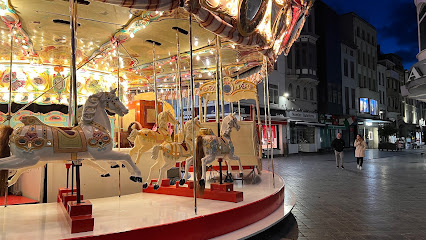
Action Bredene
Discover Action Bredene, the ultimate shopping destination in Belgium with a diverse range of products from furniture to hobby supplies.

Action Oostende
Explore Action Oostende: Your ultimate general store for DIY, home goods, gifts, and more in the heart of Ostend.
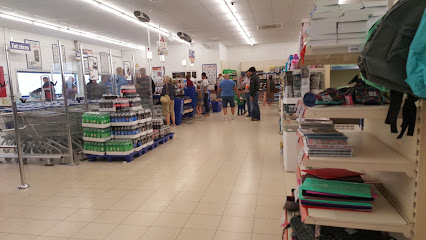
Gelato Maxzim
Indulge in the exquisite flavors of Gelato Maxzim, Ostend's premier ice cream shop, where every scoop is a delicious adventure.
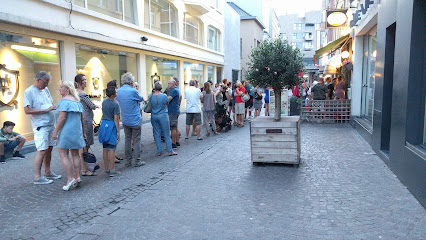
Decathlon Oostende
Explore Decathlon Oostende for top-notch sporting goods, bicycles, camping gear, and more for an unforgettable adventure in Belgium's coastal gem.
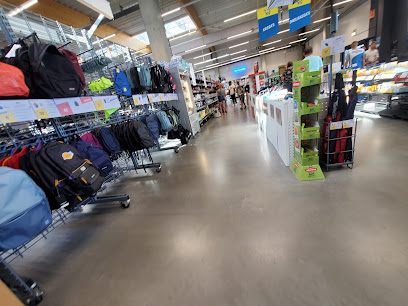
Dreamland
Explore Dreamland in Ostend for a magical experience filled with toys, books, games, and unique gifts for all ages.
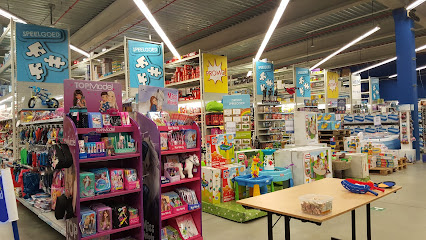
A.S.Adventure
Discover a wide range of outdoor clothing and equipment at A.S. Adventure in Ostend, your destination for beach and camping gear.

GAMMA-Ostend Airport
Explore GAMMA-Ostend Airport: Your one-stop shop for all DIY needs, from building materials to garden supplies, perfect for travelers and locals alike.
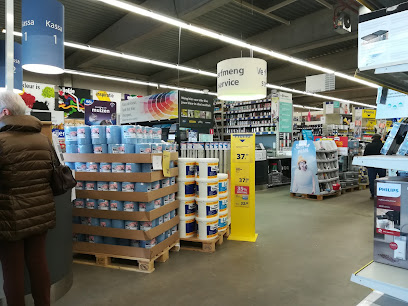
Deweert Sports
Discover your passion for sports at Deweert Sports in Ostend, where quality gear meets expert advice for every adventurer.
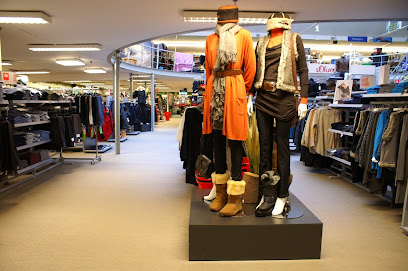
Gamma
Discover Gamma in Ostend: Your trusted hardware store for tools, building materials, and DIY supplies, perfect for projects big and small.
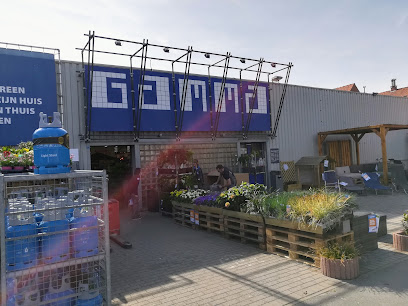
Sports Direct
Explore Sports Direct in Ostend for the best deals on sportswear, bicycles, and outdoor gear, perfect for all your athletic adventures.
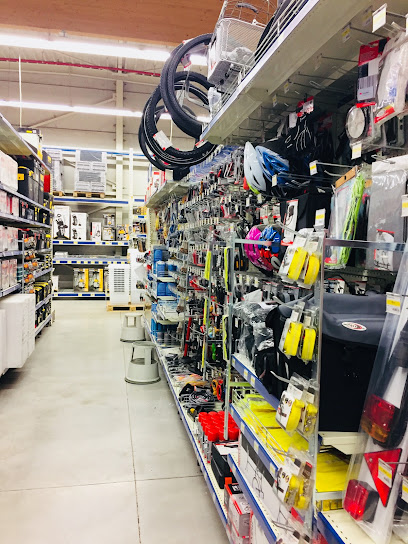
LILY OOSTENDE
Experience unique fashion and local craftsmanship at Lily Oostende, the charming boutique in the heart of Ostend, Belgium.
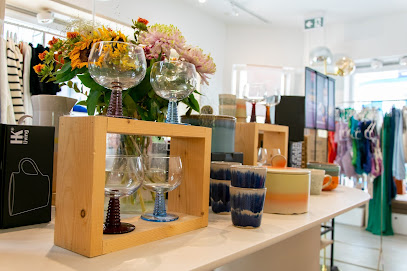
The Crystal Ship
Explore the vibrant outdoor art gallery of The Crystal Ship in Ostend, where creativity meets community in a stunning open-air museum.
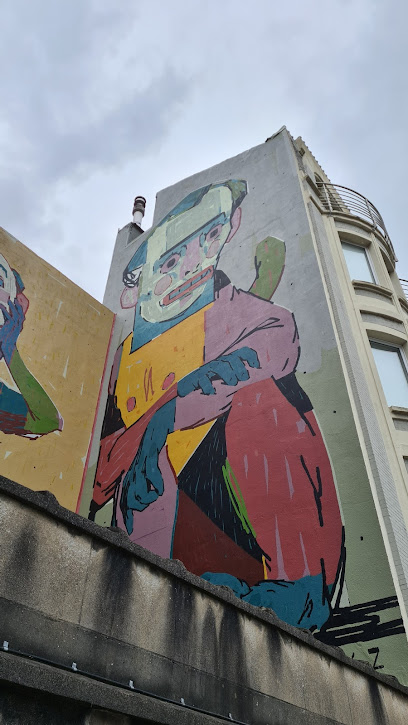
Tabakshop
Experience the finest tobacco selection at Tabakshop in Ostend, a local favorite for quality and friendly service.
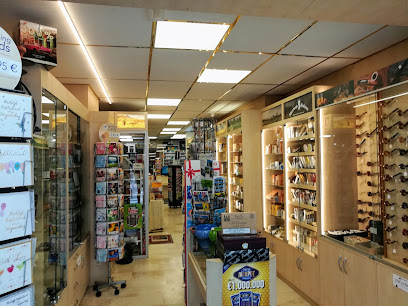
Ferm Homme
Explore Ferm Homme in Ostend for contemporary men's fashion, featuring stylish apparel and personalized service that reflects the vibrant local culture.
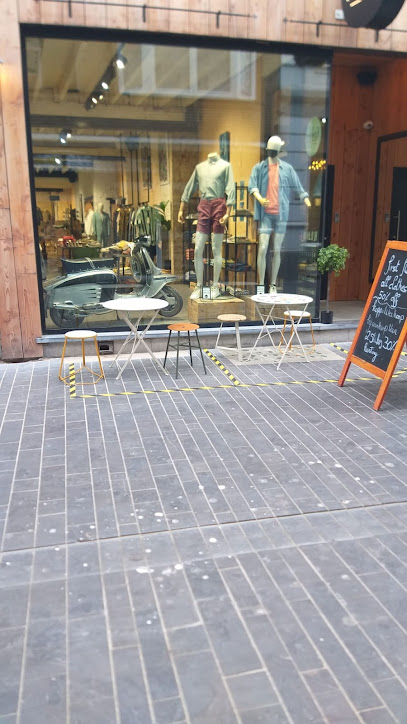
Essential bars & hidden hideouts
Q Beach House
Experience the vibrant atmosphere and stunning seaside views at Q Beach House, the ultimate beach bar in Ostend, Belgium.
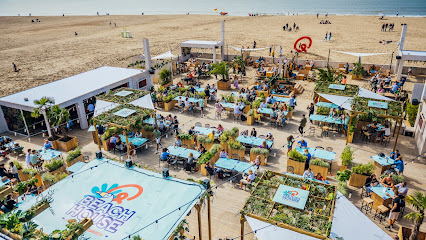
Café Botteltje
Experience the flavors of Belgium at Café Botteltje, a premier gastropub in Ostend offering exquisite dishes and an extensive drink selection.
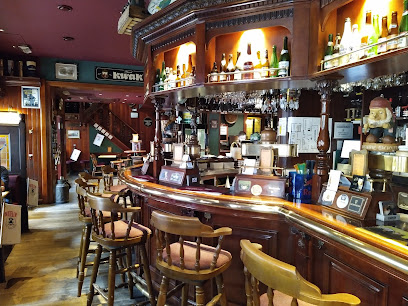
l'Apéro Ostende
Experience authentic Belgian cuisine at l'Apéro Ostende, where delightful flavors meet breathtaking seaside views for an unforgettable dining experience.
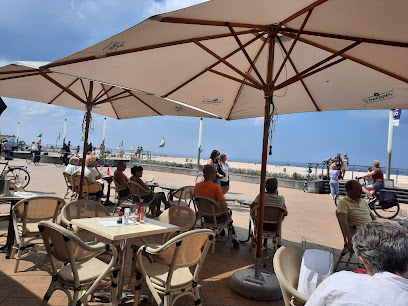
Lafayette Music Bar
Experience the vibrant ambiance and live music at Lafayette Music Bar in Ostend, the perfect spot for nightlife enthusiasts and music lovers.
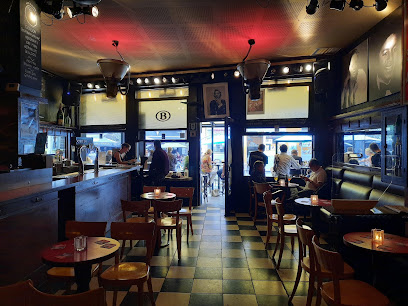
Blue Buddha Beach - Oostende
Discover the perfect blend of relaxation and nightlife at Blue Buddha Beach, Oostende's premier beach bar with stunning ocean views.
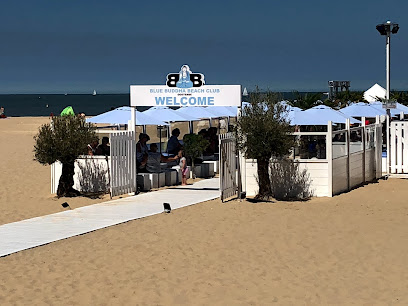
Bondi Beach Bar Oostende (Pop Up Bar)
Discover the vibrant Bondi Beach Bar in Oostende, where refreshing drinks and stunning sunsets come together for an unforgettable beach experience.
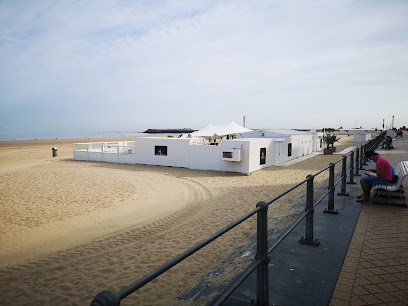
Hemingway
Discover the vibrant nightlife at Hemingway Bar in Ostend, where expertly crafted cocktails and a lively atmosphere await every visitor.
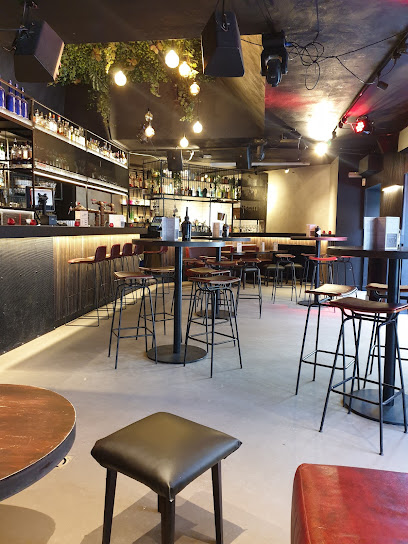
De Zeegeuzen
Discover the vibrant nightlife of Ostend at De Zeegeuzen, a lively bar with an extensive drink menu and a welcoming atmosphere.
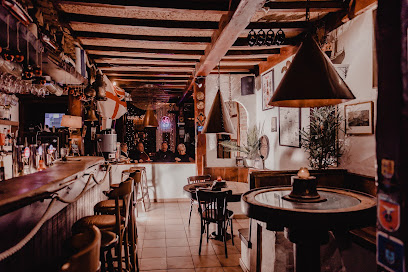
Bar Bristol
Discover exquisite dining at Bar Bristol in Ostend, where fresh seafood meets Belgian hospitality in a cozy environment.
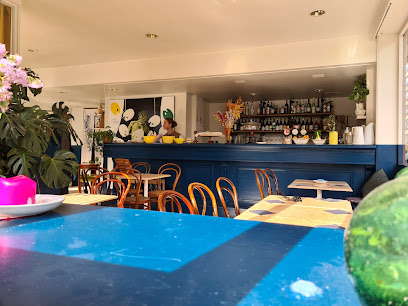
Victor's Boutique Bar
Experience the vibrant nightlife of Ostend at Victor's Boutique Bar, where expertly crafted cocktails and a chic atmosphere await.
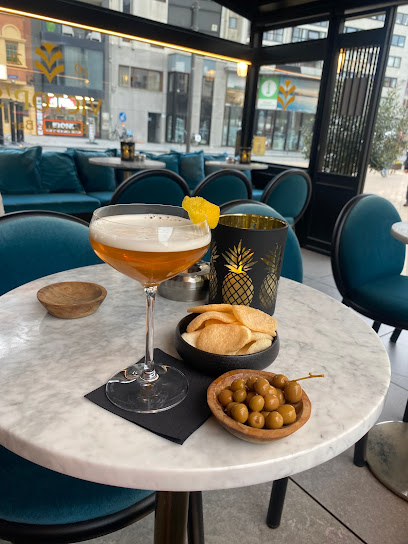
Rhumerie Louis
Discover the vibrant Rhumerie Louis in Ostend, a cocktail bar dedicated to rum lovers with an extensive selection and lively atmosphere.
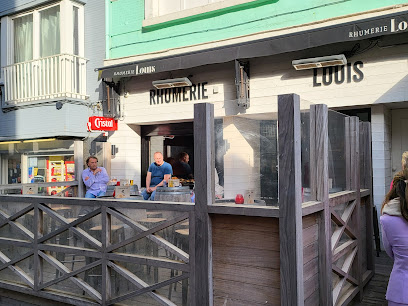
The Green Man Ostend
Explore a unique selection of local and international beverages at The Green Man Ostend, your go-to liquor store in the heart of Ostend.
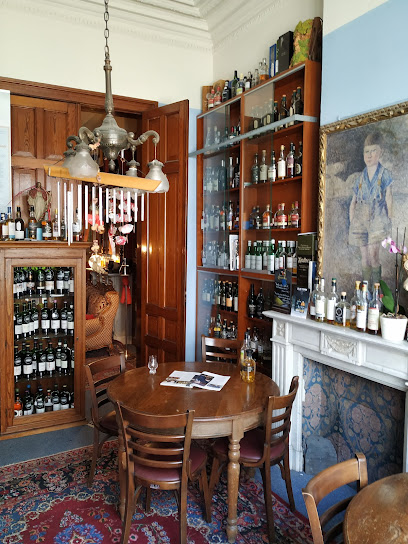
Loungebar Rood
Discover Loungebar Rood in Ostend: your go-to spot for refreshing drinks, vibrant ambiance, and unforgettable nights by the coast.
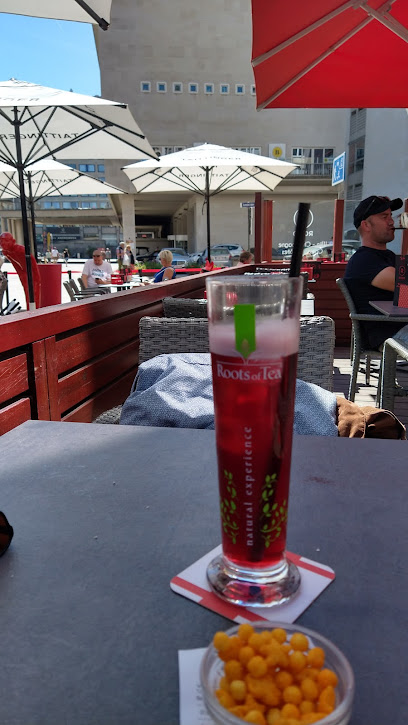
Marie K beach summer vibes
Experience the ultimate beach vibes at Marie K Beach in Ostend, where refreshing drinks and stunning sea views await you.
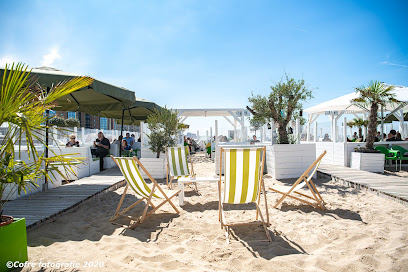
VINES OOSTENDE
Discover the exquisite wine and tapas experience at VINES OOSTENDE, where every sip and bite tells a story of flavor and tradition.
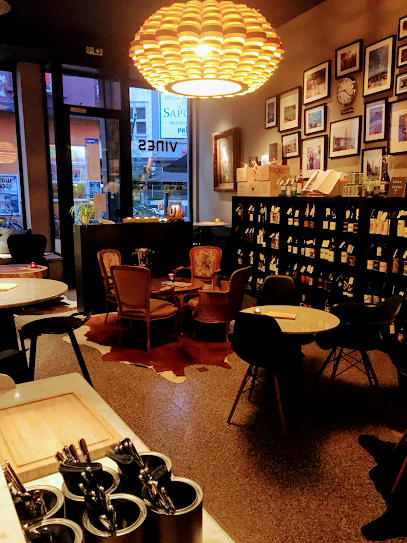
Local Phrases about Ostend Beach
-
- HelloHallo
[ha-loh] - GoodbyeTot ziens
[tot zeens] - YesJa
[yah] - NoNee
[nee] - Please/You're welcomeAlstublieft
[al-stu-bleeft] - Thank youDank u
[dank oo] - Excuse me/SorrySorry
[soh-ree] - How are you?Hoe gaat het?
[hoo gaat het] - Fine. And you?Goed. En met jou?
[khoot. en met yow] - Do you speak English?Spreekt u Engels?
[spraykt oo engels] - I don't understandIk begrijp het niet
[ik buh-grayp het neet]
- HelloHallo
-
- I'd like to see the menu, pleaseMag ik de menukaart zien, alstublieft
[mag ik de meh-noo-kahrt seen, al-stu-bleeft] - I don't eat meatIk eet geen vlees
[ik ayt khayn vlays] - Cheers!Proost!
[prohst] - I would like to pay, pleaseIk wil graag betalen, alstublieft
[ik vil khrahg buh-tah-lun, al-stu-bleeft]
- I'd like to see the menu, pleaseMag ik de menukaart zien, alstublieft
-
- Help!Help!
[help] - Go away!Ga weg!
[gah vekh] - Call the Police!Bel de Politie!
[bel duh po-lee-see] - Call a doctor!Bel een dokter!
[bel ayn dohk-tur] - I'm lostIk ben verdwaald
[ik ben fur-dwahld] - I'm illIk ben ziek
[ik ben zik]
- Help!Help!
-
- I'd like to buy...Ik wil graag kopen...
[ik vil khrahg koh-pun] - I'm just lookingIk kijk alleen maar
[ik kayk aylun mahr] - How much is it?Hoeveel kost het?
[hoo-vale kost het] - That's too expensiveDat is te duur
[dat is tuh dyoor] - Can you lower the price?Kunt u de prijs verlagen?
[kunt oo duh prays vuh-rah-lun]
- I'd like to buy...Ik wil graag kopen...
-
- What time is it?Hoe laat is het?
[hoo laht is het] - It's one o'clockHet is een uur
[het is ayn oor] - Half past (10)Half elf
[hahlf elf] - MorningOchtend
[okhtuhnt] - AfternoonNamiddag
[nah-mee-dahkh] - EveningAvond
[ah-vohnt] - YesterdayGisteren
[khis-tur-un] - TodayVandaag
[vahn-dahkh] - TomorrowMorgen
[mohr-khun] - 1Een
[ayn] - 2Twee
[tvay] - 3Drie
[dree] - 4Vier
[veer] - 5Vijf
[vayf] - 6Zes
[zays] - 7Zeven
[zay-vun] - 8Acht
[ahkht] - 9Negen
[nay-khun] - 10Tien
[teen]
- What time is it?Hoe laat is het?
-
- Where's a/the...?Waar is een/de...?
[vahr is ayn/de] - What's the address?Wat is het adres?
[vaht is het ah-dres] - Can you show me (on the map)?Kan je me (op de kaart) tonen?
[kahn yuh muh (op deh kaart) toh-nun] - When's the next (bus)?Wanneer is de volgende (bus)?
[vahn-er is duh vol-guhn-duh (bus)] - A ticket (to ....)Een ticket (naar ....)
[ayn ticket (nahr)]
- Where's a/the...?Waar is een/de...?
History of Ostend Beach
-
Ostend, originally a small village on an island in the North Sea, began to grow in significance during the Middle Ages. The name 'Ostend' translates to 'Eastern End,' referring to its position on the island. The early settlers were primarily fishermen, and the village remained relatively obscure until the later centuries.
-
Ostend played a pivotal role during the Eighty Years' War between the Dutch and the Spanish. The Siege of Ostend (1601-1604) was one of the longest and bloodiest sieges in European history. Although the Spanish ultimately captured Ostend, the siege significantly weakened their forces and marked a turning point in the war.
-
During the 18th century, Ostend experienced a period of prosperity. The Ostend Company, established in 1722, was granted a monopoly on trade with the East Indies by the Austrian Emperor Charles VI. This led to economic growth and the development of the port, though the company was dissolved in 1731 under international pressure.
-
With the rise of Napoleon, Ostend became strategically significant once more. Napoleon had grand plans to invade Britain and used Ostend as a base for his naval operations. Fortifications were built along the coast to protect against potential British attacks. These historical fortifications are still visible today.
-
By the 19th century, Ostend had transformed into a fashionable seaside resort, attracting European aristocracy and royalty, including Belgium's King Leopold II. The construction of the grand Kursaal in 1852, a luxurious casino and concert hall, marked Ostend as a premier destination for leisure and entertainment.
-
Ostend's strategic location made it a focal point during both World Wars. In WWI, it was occupied by German forces, who used it as a submarine base. During WWII, Ostend was heavily fortified as part of the Atlantic Wall, a series of coastal defenses built by Nazi Germany. The city suffered significant damage from Allied bombings.
-
Post-World War II, Ostend underwent extensive reconstruction. It re-emerged as a vibrant city with a rich cultural scene, boasting museums, galleries, and events. The annual Ostend Film Festival and the Theater by the Sea are notable cultural highlights that draw visitors from around the world.
Ostend Beach Essentials
-
Ostend Beach is located on the coast of Belgium and is easily accessible from major cities in Europe. The nearest international airport is Brussels Airport, approximately 120 kilometers away. From Brussels, you can take a direct train to Ostend, which takes about 1.5 hours. Alternatively, you can drive or take a bus. The train station in Ostend is conveniently located near the city center and the beach.
-
Ostend is a compact city, and many attractions are within walking distance. Public transportation includes buses and trams operated by De Lijn, which are efficient and cover most parts of the city. Taxis are also available and can be hailed on the street or booked via phone. For a scenic experience, consider renting a bicycle to explore the coastal paths. Car rentals are available but may not be necessary unless you plan to explore the surrounding areas.
-
The official currency in Belgium is the Euro (EUR). Credit and debit cards are widely accepted in hotels, restaurants, and shops. ATMs are plentiful, especially in tourist areas, so withdrawing cash is convenient. However, it's advisable to carry some cash for small purchases, especially in local markets or small establishments.
-
Ostend is generally a safe destination for tourists. However, as with any tourist spot, it's important to stay vigilant. Petty crimes like pickpocketing can occur, especially in crowded areas such as the beach and train station. Avoid walking alone late at night in poorly lit areas. The neighborhoods around the train station and some parts of the city center can be less safe after dark, so it's best to stay in well-populated areas.
-
In case of emergency, dial 112 for immediate assistance, which is the general emergency number for police, fire, and medical services in Belgium. Ostend has several medical facilities, including the AZ Damiaan Hospital. Pharmacies are available throughout the city for minor health issues. It's recommended to have travel insurance that covers medical emergencies.
-
Fashion: Do dress comfortably and appropriately for the beach. Casual attire is acceptable in most places, but avoid overly revealing clothing in public areas away from the beach. Religion: Do respect local religious customs and traditions, especially when visiting churches. Public Transport: Do validate your ticket before boarding buses or trams. Don't eat or drink on public transport. Greetings: Do greet people with a handshake or a friendly 'Hallo'. Eating & Drinking: Do try local seafood and Belgian specialties. Don't forget to tip in restaurants; a 10% tip is customary.
-
To experience Ostend Beach like a local, visit the local markets such as the Visserskaai for fresh seafood and the Wapenplein market for various goods. Take a leisurely stroll along the Albert I Promenade, enjoy a bike ride along the coastal paths, and don’t miss out on the chance to try fresh Belgian waffles from a local vendor. Engage with locals and ask for their recommendations; they are often friendly and happy to share tips on hidden gems in the city.
Trending Landmarks in Ostend Beach
-
Strand Oostende
-
Leopoldpark
-
Atlantikwall Raversyde
-
Maria Hendrikapark
-
Fort Napoleon
-
Strand Mariakerke
-
Japanse Tuin - Shin Kai Tei
-
Zeeheldenplein
-
Royal Galleries of Ostend
-
Oostende Pier
-
Monument of Leopold II
-
Onze-Lieve-Vrouw-ter-Duinenkerk
-
IJslandvaarder Amandine
-
Beaufort Beeldenpark: Rock Strangers - Arne Quinze
-
Duinen Raversijde
Nearby Cities to Ostend Beach
-
Things To Do in Ostend-Bruges International Airport
-
Things To Do in De Haan
-
Things To Do in Nieuwpoort
-
Things To Do in Blankenberge
-
Things To Do in Bruges
-
Things To Do in Zeebrugge
-
Things To Do in Knokke-Heist
-
Things To Do in Ypres
-
Things To Do in Kortrijk
-
Things To Do in Ghent
-
Things To Do in Lille
-
Things To Do in Tournai
-
Things To Do in Aalst
-
Things To Do in Antwerp
-
Things To Do in Brussels










